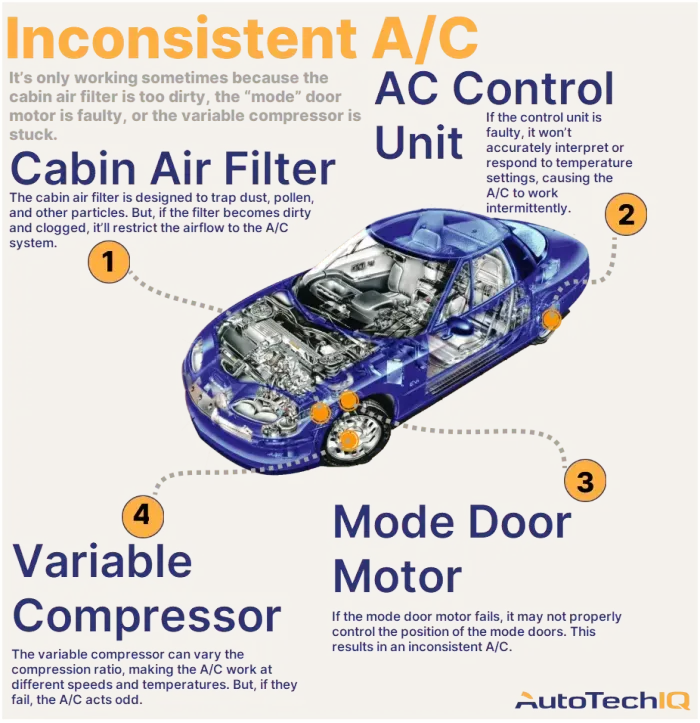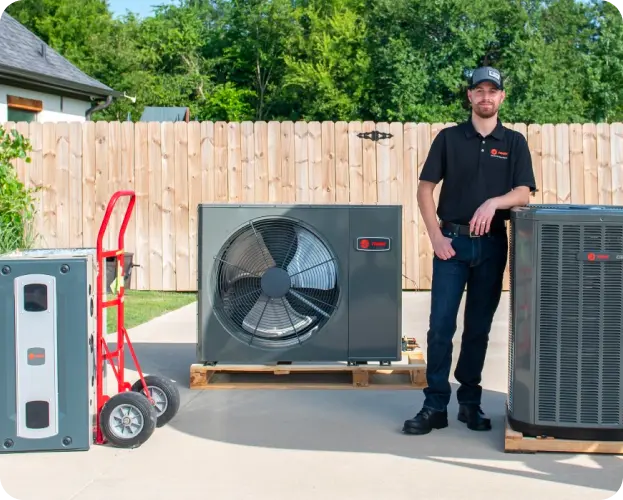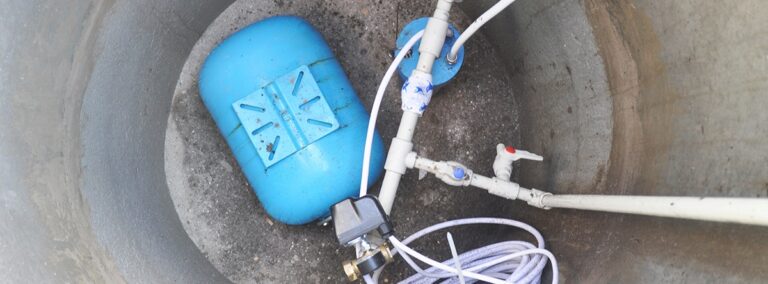Why Does My Air Conditioner Turn On By Itself? Solving the Mystery
Your air conditioner may turn on by itself due to a faulty thermostat or electrical issues. Smart system malfunctions can also cause this.
Unintended air conditioner activation can be frustrating and confusing. It might indicate problems within the system’s components. A malfunctioning thermostat often triggers unwanted cycling. Electrical issues can also interfere with the unit’s normal operation. Smart home systems, when improperly configured, may send erroneous signals to the AC.
Identifying the root cause early can prevent further complications. Regular maintenance and professional inspection are crucial. Maintaining your air conditioner ensures it functions efficiently. Addressing these concerns promptly can save on energy costs and extend the unit’s lifespan.
Common Causes
Air conditioners turning on by themselves can be perplexing. Understanding the common causes can help you troubleshoot the problem effectively. Below, we will explore some of the most frequent issues that might cause this phenomenon.
Power Surges
Power surges are a major cause of an air conditioner turning on by itself. A surge can send a jolt of electricity through your system. This can cause the unit to restart automatically. Power surges can occur due to:
- Lightning strikes
- Faulty wiring
- Issues with the power grid
To protect your air conditioner, consider using a surge protector. This can help prevent unexpected restarts and other electrical problems.
Thermostat Issues
Thermostat issues are another common cause. If the thermostat malfunctions, it can send incorrect signals to the air conditioner. This might cause the unit to turn on unexpectedly. Common thermostat problems include:
- Dead batteries
- Faulty wiring
- Incorrect settings
Ensure your thermostat is set correctly and has fresh batteries. Sometimes, a simple reset can solve the issue. If problems persist, consider calling a professional for a thorough check-up.
Electrical Interference
Electrical interference is a common cause of air conditioners turning on by themselves. This interference can come from various sources and can disrupt your AC’s normal function.
Nearby Devices
Devices like microwaves, televisions, and cordless phones can cause interference. These devices emit signals that may affect your air conditioner’s control system.
To reduce this issue, keep such devices away from your AC unit. You can also try turning off these devices to see if your AC behaves normally.
Wiring Problems
Faulty wiring can also lead to your air conditioner turning on by itself. Damaged or old wires may cause electrical surges that trigger your AC.
It’s crucial to check the wiring regularly. Hire a professional to inspect and repair any wiring issues. This ensures your AC operates without unexpected interruptions.
| Issue | Solution |
|---|---|
| Nearby Devices | Keep electronics away from the AC unit |
| Wiring Problems | Inspect and repair damaged wiring |
Thermostat Settings
Understanding your thermostat settings can solve why your air conditioner turns on by itself. The thermostat controls your home’s temperature. It tells the AC when to start and stop. Let’s dive into the key elements of thermostat settings.
Temperature Thresholds
The temperature thresholds are the set points on your thermostat. These set points determine when the air conditioner activates. If your room temperature goes above the set point, the AC turns on.
For example, if the thermostat is set to 72°F, the AC will activate when the room temperature exceeds this mark. The thermostat constantly monitors the room temperature. It ensures your home stays within the desired range.
Auto Mode
Many thermostats have an Auto Mode. This mode automatically adjusts the temperature settings. It switches between heating and cooling as needed. This could be why your air conditioner turns on by itself.
In Auto Mode, the thermostat maintains a balanced temperature. This mode ensures your home is always comfortable. If the room temperature deviates, the system corrects it.
| Setting | Description |
|---|---|
| Temperature Threshold | Activates AC when room temp exceeds set point |
| Auto Mode | Automatically adjusts between heating and cooling |
These thermostat settings play a crucial role. They ensure your air conditioner operates efficiently. Understanding them can help you manage your AC better.
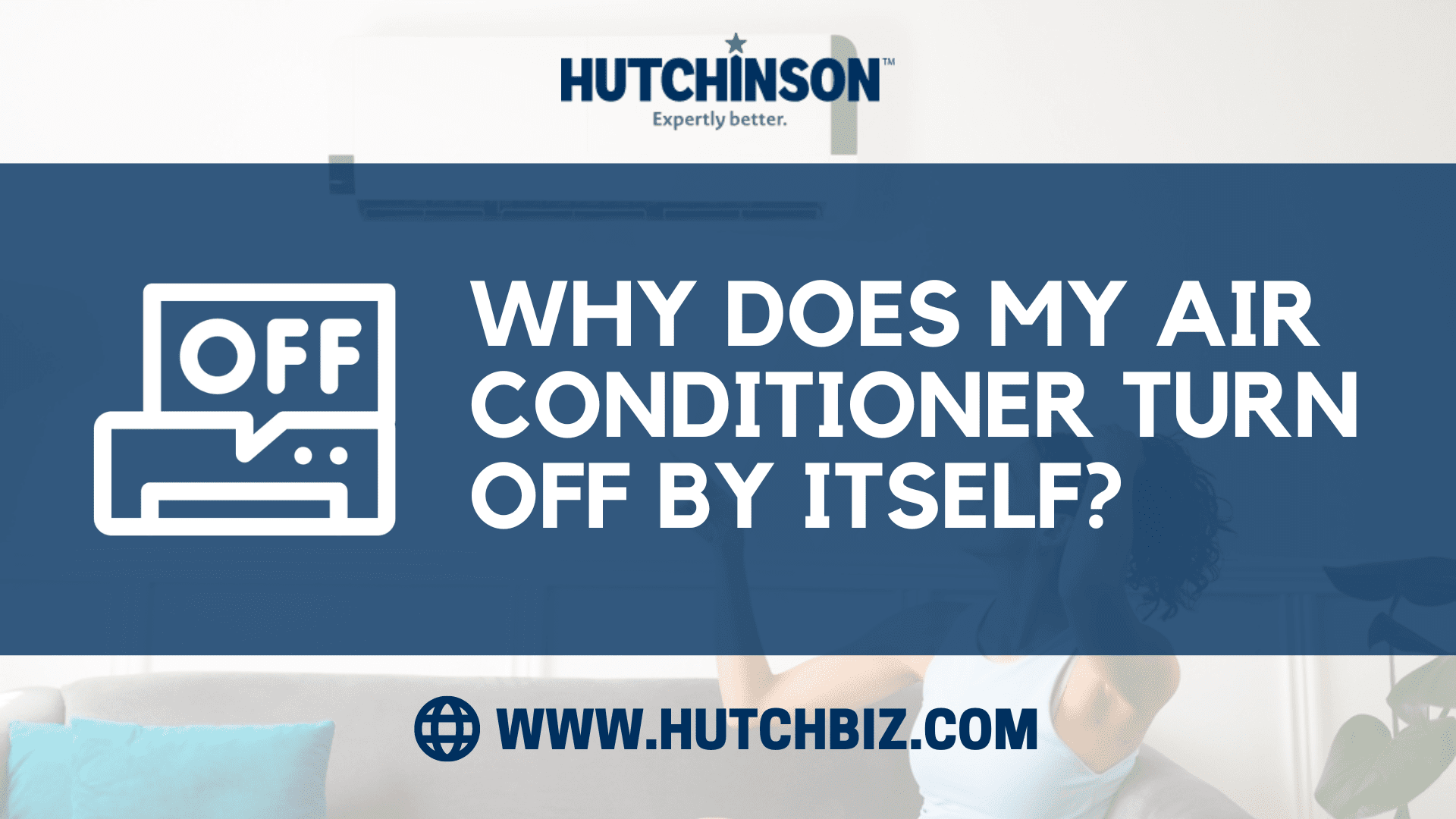
Credit: www.hutchbiz.com
Faulty Sensors
Is your air conditioner turning on by itself? One common reason is faulty sensors. These sensors play a crucial role in maintaining the comfort of your home. When they don’t work properly, your AC might behave unpredictably. Let’s dive into the two main types of sensors that can cause issues: temperature sensors and humidity sensors.
Temperature SensorsTemperature sensors monitor the air’s temperature. They help your AC know when to turn on or off. If these sensors fail, your air conditioner may turn on without warning. This can lead to unnecessary energy consumption and a lack of comfort.
Here are some signs of faulty temperature sensors:
- AC turns on when the room is already cool
- AC runs for very short or long cycles
- Inconsistent room temperature
To fix this, you might need to replace the sensor. Always consult a professional for proper diagnosis and repair.
Humidity SensorsAnother critical component is the humidity sensor. These sensors measure the moisture level in the air. If they malfunction, your AC might turn on and off unexpectedly.
Symptoms of a faulty humidity sensor include:
- AC runs even when the air is dry
- AC does not turn on during humid conditions
- Frequent cycling on and off
Just like with temperature sensors, it’s essential to consult a professional. They can diagnose and fix the issue, ensuring your AC works efficiently.
Remote Control Signals
Many people wonder why their air conditioner turns on by itself. One common reason is remote control signals. These signals can sometimes behave unpredictably.
Infrared Interference
Most air conditioners use infrared (IR) signals from their remote controls. Infrared interference can cause the unit to turn on unexpectedly.
Many household devices, like TVs and DVD players, also use IR signals. When these devices send signals, your air conditioner might pick them up too. This causes unexpected activation.
Another source of interference is sunlight. Direct sunlight can sometimes mimic IR signals. This can trick your air conditioner into turning on.
Neighbor’s Remote
Living in close proximity to others can also be a factor. Your neighbor’s remote control might be on the same frequency as yours.
For example, if your neighbor turns on their air conditioner, it might activate yours too. This happens when both remotes are set to the same channel.
Here’s a quick checklist to determine if this is the case:
- Check if your air conditioner turns on when your neighbor uses theirs.
- Try changing the frequency on your remote, if possible.
- Consider moving your air conditioner to a different location in your home.
Remember, these steps can help you identify and fix the issue.
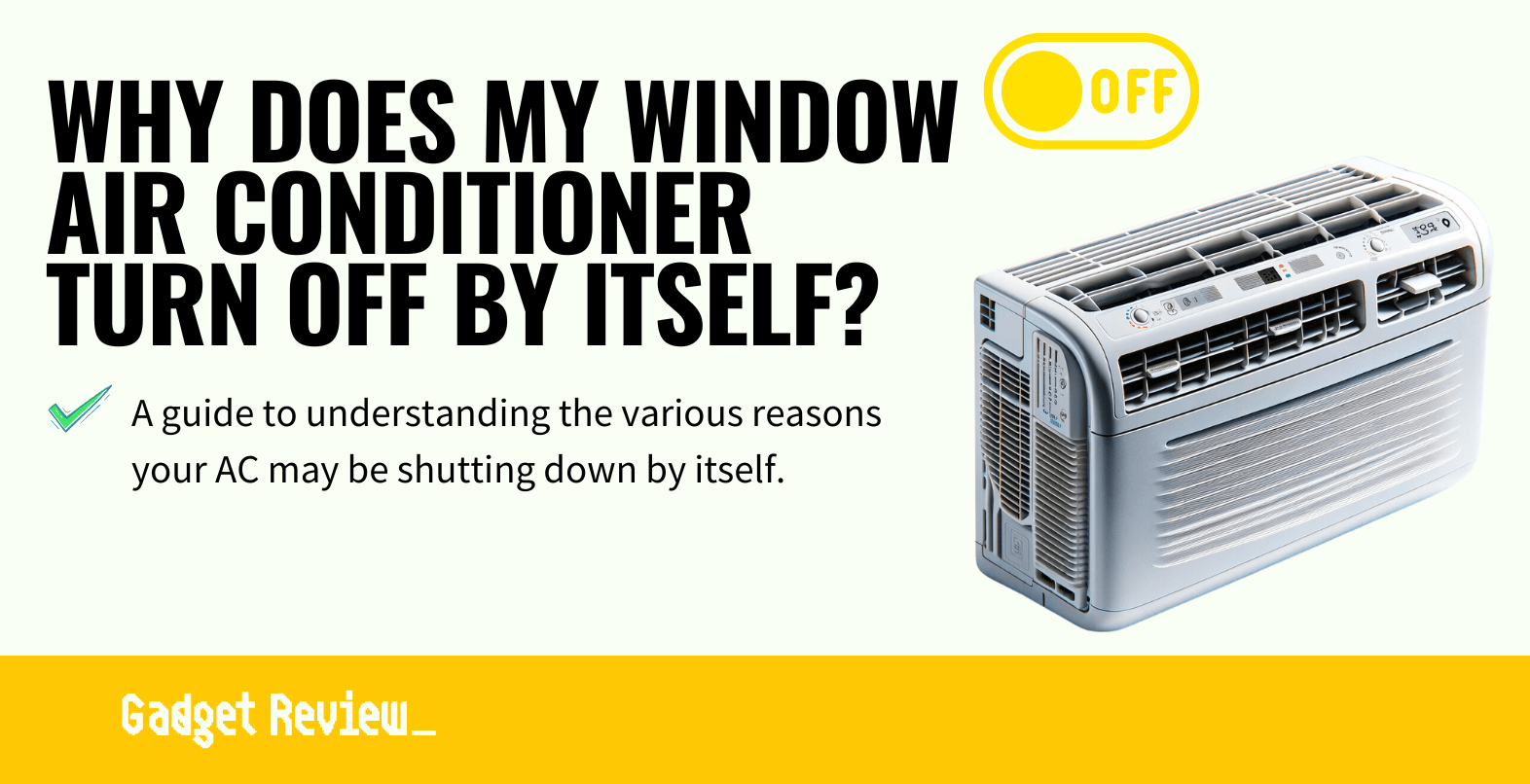
Credit: www.gadgetreview.com
Smart Home Integration
Integrating your air conditioner with a smart home system can make life easier. But sometimes, it can cause your air conditioner to turn on by itself. Let’s dive into the reasons why this happens.
Voice Assistants
Voice assistants like Alexa or Google Home can control your air conditioner. They can sometimes misinterpret sounds as commands. This can cause your air conditioner to turn on unexpectedly. Make sure you set clear commands and check the settings in your voice assistant app.
Automation Routines
Smart home systems often use automation routines. These routines can include turning on your air conditioner at specific times. If you have set up such routines, they might be causing your air conditioner to turn on by itself. Review and adjust your routines in your smart home app to avoid unexpected activations.
Here is a table summarizing common automation routines:
| Routine | Description |
|---|---|
| Morning Wake Up | Turns on the air conditioner at 7 AM |
| Home Arrival | Activates the air conditioner when you arrive home |
| Temperature Control | Adjusts the air conditioner based on room temperature |
To avoid these issues, follow these tips:
- Check voice assistant settings.
- Review automation routines.
- Adjust commands for better accuracy.
By understanding smart home integration, you can better manage your air conditioner. This ensures it only turns on when you need it.
Maintenance Tips
Air conditioners can sometimes turn on by themselves. This issue could be due to various reasons. Regular maintenance can help prevent such problems. Here are some essential maintenance tips to keep your air conditioner in top shape.
Regular Cleaning
Dust and debris can clog the air filter. A clogged filter can cause your air conditioner to malfunction. Clean the air filter every month. Use a soft brush or vacuum to remove dust. For washable filters, rinse with water and let dry completely.
Also, clean the condenser coils. Dirty coils reduce efficiency and can lead to system failure. Use a coil cleaner or a mixture of water and mild detergent. Rinse thoroughly and let it dry.
- Clean air filter: Monthly
- Clean condenser coils: Every 6 months
Professional Inspection
Schedule regular inspections by a professional. They can identify and fix potential issues before they become serious. A professional will check the refrigerant levels. Low refrigerant can cause the unit to turn on by itself. They will also inspect the electrical components. Faulty wiring can lead to unexpected startups.
Professional inspections should be done at least once a year. This ensures your unit runs efficiently and reduces the risk of self-activation.
| Task | Frequency |
|---|---|
| Professional Inspection | Annually |
| Refrigerant Level Check | Annually |
| Electrical Component Check | Annually |
Regular maintenance is key to preventing your air conditioner from turning on by itself. Follow these tips to ensure a well-functioning unit.

Credit: www.tcl.com
When To Call A Professional
Sometimes, your air conditioner may turn on by itself. This issue can be baffling. Knowing when to call a professional can save you time and money.
Persistent Issues
If your air conditioner turns on by itself often, it needs attention. Frequent cycling can indicate underlying problems. Ignoring these signs may lead to bigger issues.
- Thermostat Problems: A faulty thermostat can cause erratic behavior.
- Electrical Issues: Damaged wiring can lead to unpredictable operation.
- Sensor Malfunctions: A bad sensor might not detect temperature changes.
When these problems persist, it’s best to call a professional. An expert can diagnose and fix the issue quickly.
Complex Repairs
Some air conditioner problems are too complex for DIY fixes. If you face any of these situations, it’s time to call a professional:
- Refrigerant Leaks: Handling refrigerants requires special knowledge and tools.
- Compressor Issues: The compressor is a critical part of the system.
- Electrical Repairs: Messing with electrical components can be dangerous.
Professionals have the training to handle these complex repairs safely. They ensure your air conditioner runs smoothly and efficiently.
Frequently Asked Questions
Why Does My Ac Start Automatically?
Your AC may start automatically due to a faulty thermostat, power surge, or incorrect settings. Check for timer settings or smart home integrations. Regular maintenance can prevent such issues. If problems persist, consult a professional technician.
Why Is My Ac Suddenly Turning On?
Your AC might be turning on due to a faulty thermostat, dirty filters, or electrical issues. Check for any obstructions or schedule maintenance.
Can Ac Units Turn On By Themselves?
Yes, AC units can turn on by themselves. This can happen due to power surges, faulty thermostats, or timer settings.
Conclusion
Understanding why your air conditioner turns on by itself is crucial. It can be due to several factors. Regular maintenance and timely checks can help. Always consult a professional for persistent issues. This ensures your AC operates efficiently and prevents unexpected problems.
Stay cool and comfortable with a well-maintained air conditioner.


